EDUCATION
Archives
Look out for free giveaways inside the articles!
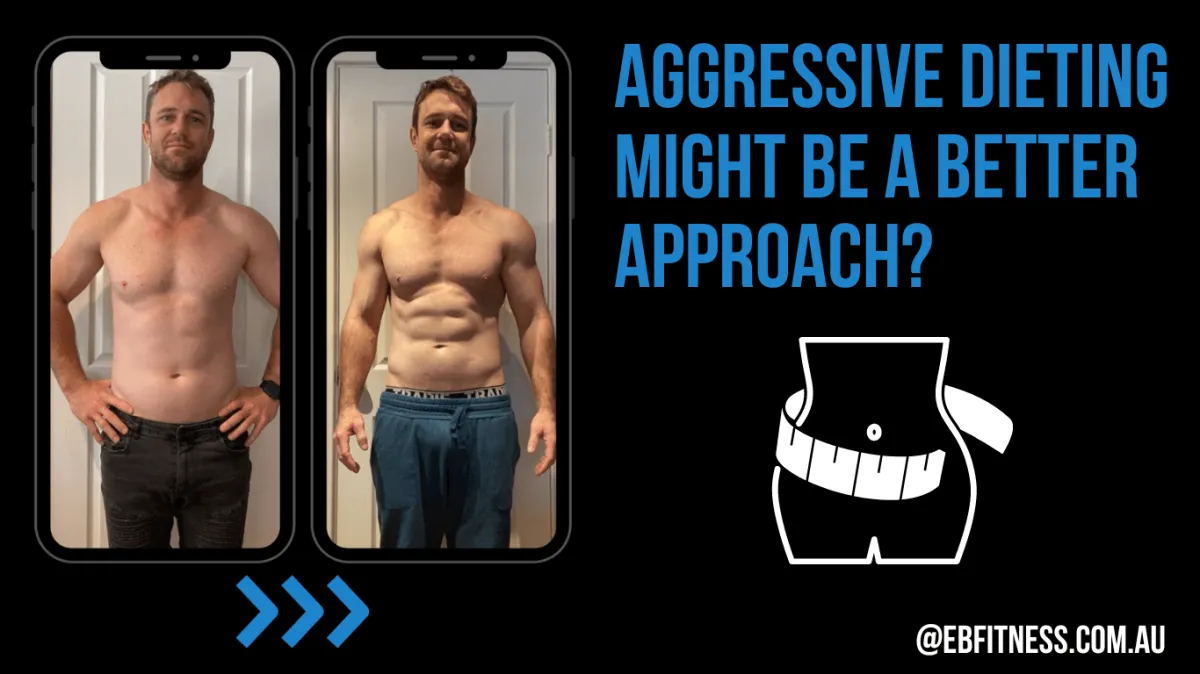
I was wrong about aggressive deficits when dieting
“ Rapid Fat loss associated with significantly greater weight loss maintenance than were successful hypoenergetic balanced diets at all years of follow up.” - Anderson et al (2001)
Reevaluating Aggressive Dieting: Debunking Myths and Embracing a New Approach
In the ever-evolving landscape of diet and weight loss strategies, it's easy to fall into the trap of dismissing certain methods as mere fads. I, like many others, once viewed aggressive deficits in dieting with skepticism. However, as research progresses and our understanding deepens, it's becoming increasingly clear that when implemented correctly, aggressive dieting can yield safe and sustainable weight loss outcomes, challenging the notion that slow and steady always wins the race.
Revisiting the Slow and Steady Approach
Traditionally, the advice has often been to lose weight at a moderate pace to preserve muscle mass and avoid the pitfalls of aggressive calorie cutting. The rationale behind this approach seems logical: slower weight loss might result in a higher proportion of fat loss compared to lean tissue. However, reality isn't always so black-and-white. While it's true that overly aggressive dieting can lead to muscle breakdown and increased risk of losing lean body mass, the situation is nuanced. Assumptions about the superiority of slow and steady weight loss are often based on fears of weight regain associated with large deficits.

Addressing Concerns and Trade-Offs
Before delving into the benefits of aggressive dieting, it's crucial to acknowledge potential drawbacks:
Mindset Matters: Your mindset towards any diet, aggressive or slow, is arguably the most important factor determining long-term success. It should come from a place of excitement, not self-loathing.
Unconditional Permission to Eat: No foods should be off-limits. If you feel hungry, eat. It's not a starvation diet.
Understanding Weight Loss Composition: While you may lose more overall body weight than expected, it's essential to understand that this includes water weight and lean body mass, which will be regained when coming out of a deficit.
Listening to Your Body: Feeling absolutely starving is a sign to eat. Give yourself unconditional permission to eat when your body requires it.
Dispelling Common Assumptions
Let's address some common misconceptions surrounding aggressive dieting:
Wouldn’t you be starving?: Research suggests that faster weight loss can actually lead to lower hunger levels overall, with no evidence of hedonic hunger observed. A study by Coutinho et al. (2018) compared the effects of fast weight loss (4lb per week) versus gradual weight loss (2lb per week) on hunger levels, particularly focusing on hedonic and postprandial hunger (after eating).
Wouldn’t it lead to more muscle loss?: No, not if you ensure adequate protein intake and engage in resistance training. Muscle glycogen loss will come back as soon as re-feeding occurs.
Benefits and Adherence
Contrary to the belief that aggressive dieting is harder to stick to, studies have shown better adherence to the diet due to reduced hunger and the short-term nature of the protocol. Nackers et al. (2010) found that within their study, the fast weight loss group had more adherence to the program, attended significantly more sessions, completed more food records, and consumed fewer calories, leading to an average of 13.5 kg of total weight loss compared with the moderate (8.6kg) and slow weight-loss groups (5.1 kg).
Metabolic Damage and Weight Regain
Research indicates that aggressive dieting does not lead to metabolic damage or increase the chances of weight regain in the long term. Garthe (2011) showed no significant differences in weight regain measured 12 months post-diet between those that lost weight quickly compared to those that lost weight slowly.
Female-Specific Considerations
For females, timing of the approach merits attention due to potential hormonal fluctuations. Intermittent dieting, with breaks during the luteal phase, may be beneficial.
Preparing for Success
To optimise success and minimise potential setbacks, it's advisable to begin in a well-fed state, ensuring adequate nutrient intake and considering supplements like L-Carnitine. Wall et al. (2011) suggested supplementing with L-Carnitine to potentially limit fat gain during overfeeding.
What Aggressive Dieting is Not
It's important to dispel misconceptions about aggressive dieting:
Not a Long-Term Approach: Aggressive dieting is best suited for short-term phases rather than sustained periods.
Not a Fad: It's not a temporary fix but a tool for targeted fat loss.
Not Damaging to Metabolism: Aggressive dieting won't permanently harm your metabolism.
Not a Gateway to Disordered Eating: While any diet carries risks, a healthy relationship with food is essential before embarking on any approach.
Summary: Aggressive dieting, when approached with the right mindset and understanding, can be a powerful tool for achieving weight loss goals. By challenging conventional wisdom and embracing evidence-based strategies, individuals can unlock new possibilities on their journey to a healthier lifestyle.
READ SOME OF MY CLIENT TESTIMONIALS HERE
P.S. Here's some ways I can help you further.
1 Custom workout program and nutrition framework based on your unique circumstances, experience, equipment and goals.
https://app.propane-business.com/v2/preview/JZWB7ZMiwL94xCCIOdqX?notrack=true
2 If you are someone who values the richness of face-to-face interaction over online coaching. Elevate your fitness journey with this comprehensive in person training pack.
https://link.ebfitness.com.au/payment-link/65e98b71fb5b222f3ee45f6b
3 Want some more information on what I offer? Book in a FREE discovery call so we can see what would suit your circumstances best.
Discovery Call Booking
IT'S FINALLY HERE!
Unlock Your Epic Self - Join these EBFitness legends!
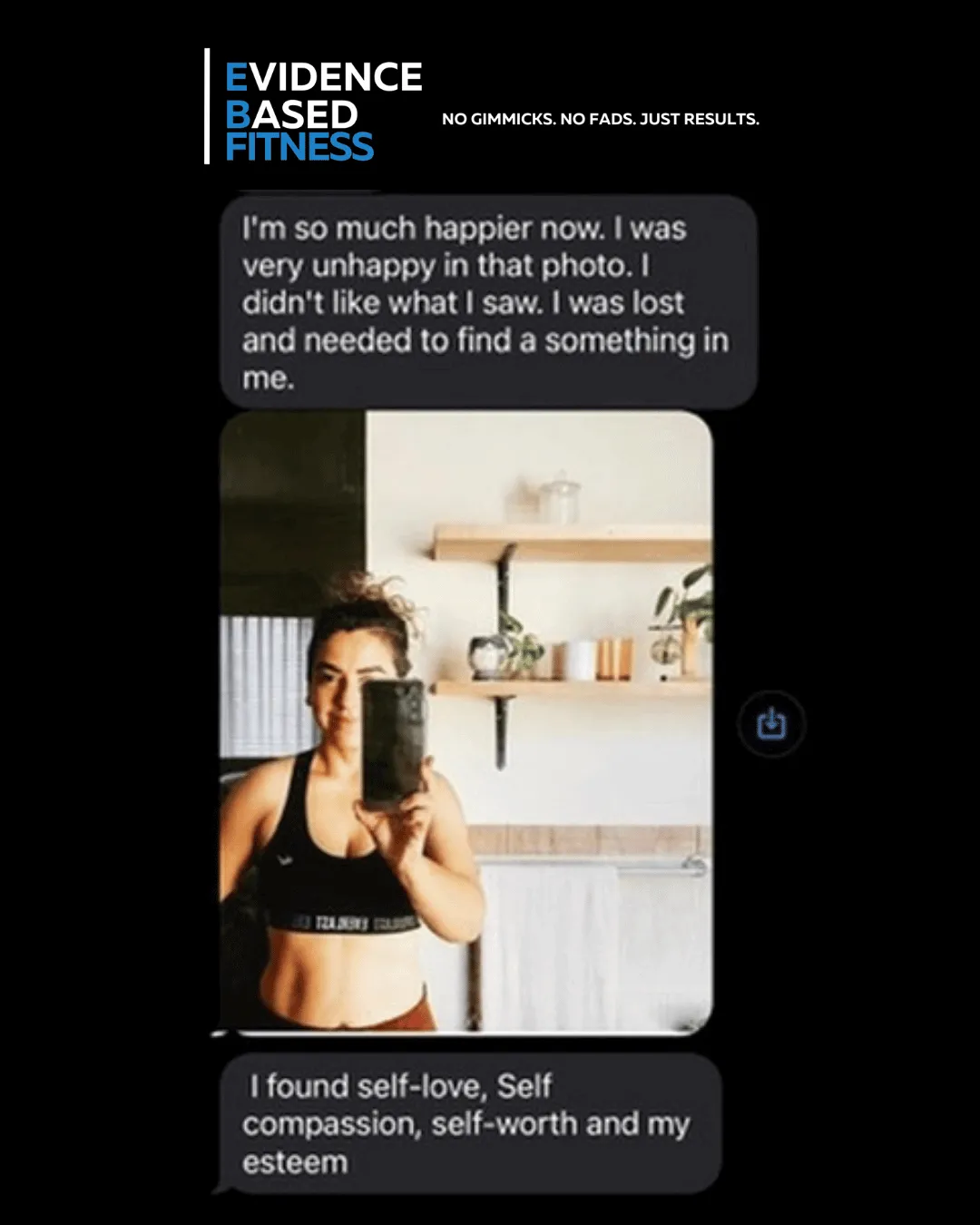

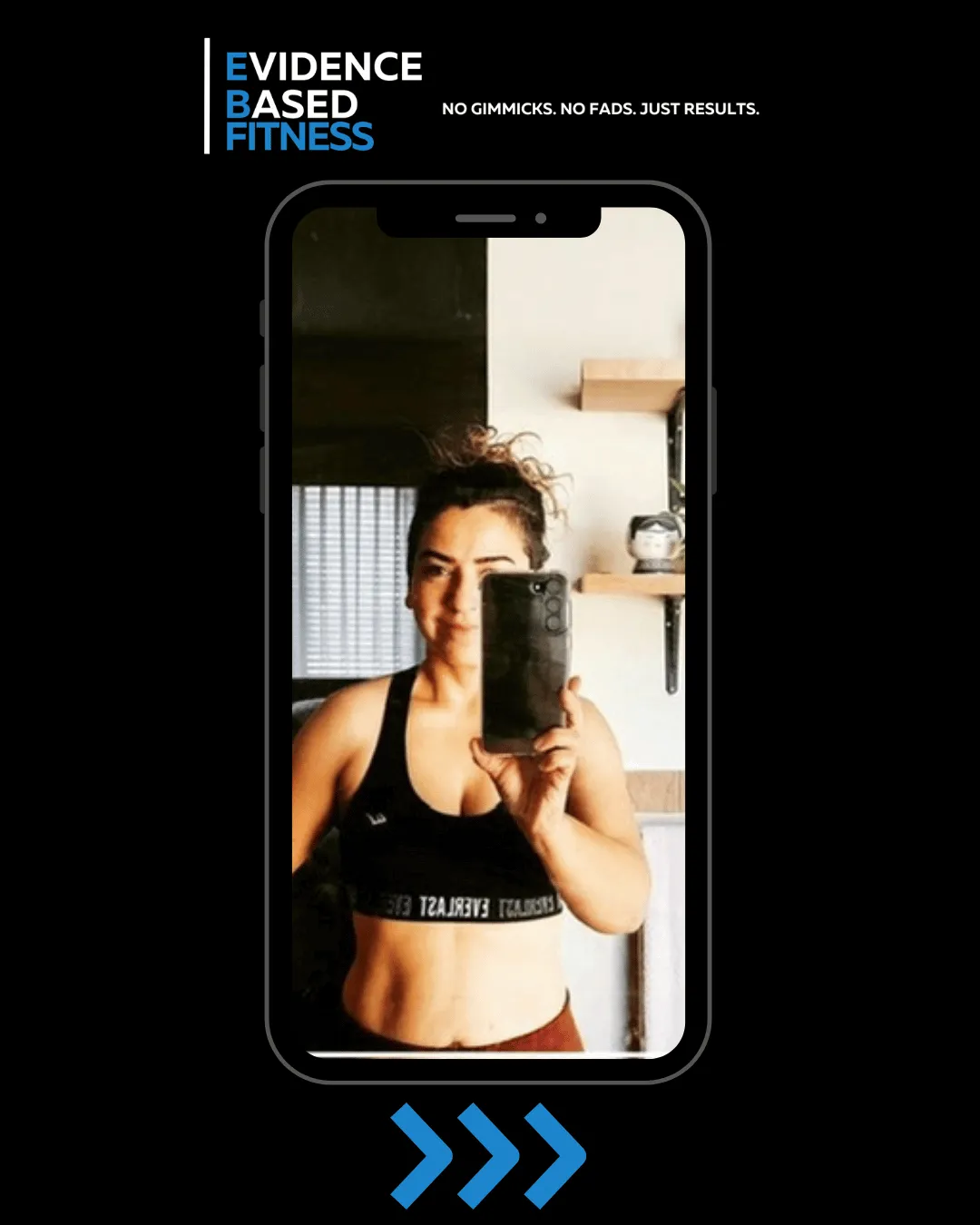
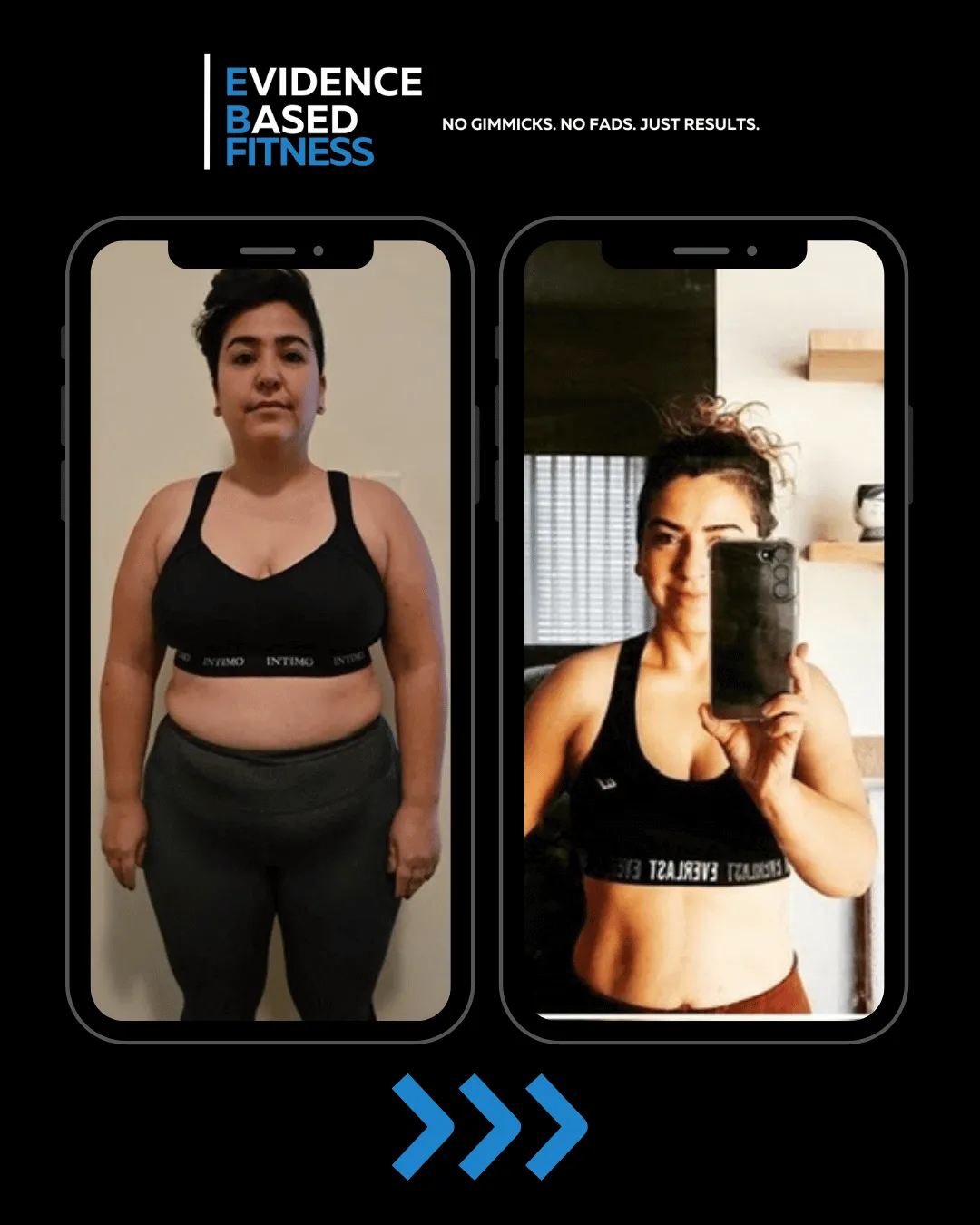

"I'm a lot happier and more confident looking in the mirror. I noticed especially through looking at all the progress photos which I'm still taking now that I'm off the program, that my stomach is flat and I'm starting to see some baby abs coming through! I definitely recommend the program to my friends if they're trying to get back on track. Elliot's knowledge, passion and commitment for what he does is incredible!"
Kim


"Elliot is a highly professional and passionate coach, with the skills and resources to back him! From the learning content, apps, check in’s, personalised goal setting, nutrition and workout plans he really has covered it all. Elliot was able to make goals that seemed impossible in the past, finally achievable."
Clare


I made a lot of progress in understanding the types of exercises I should be doing as well as the macro targets I should aim for every day. I lost 5cm off my waist in 3 weeks which was much more than I expected!!"
Steph

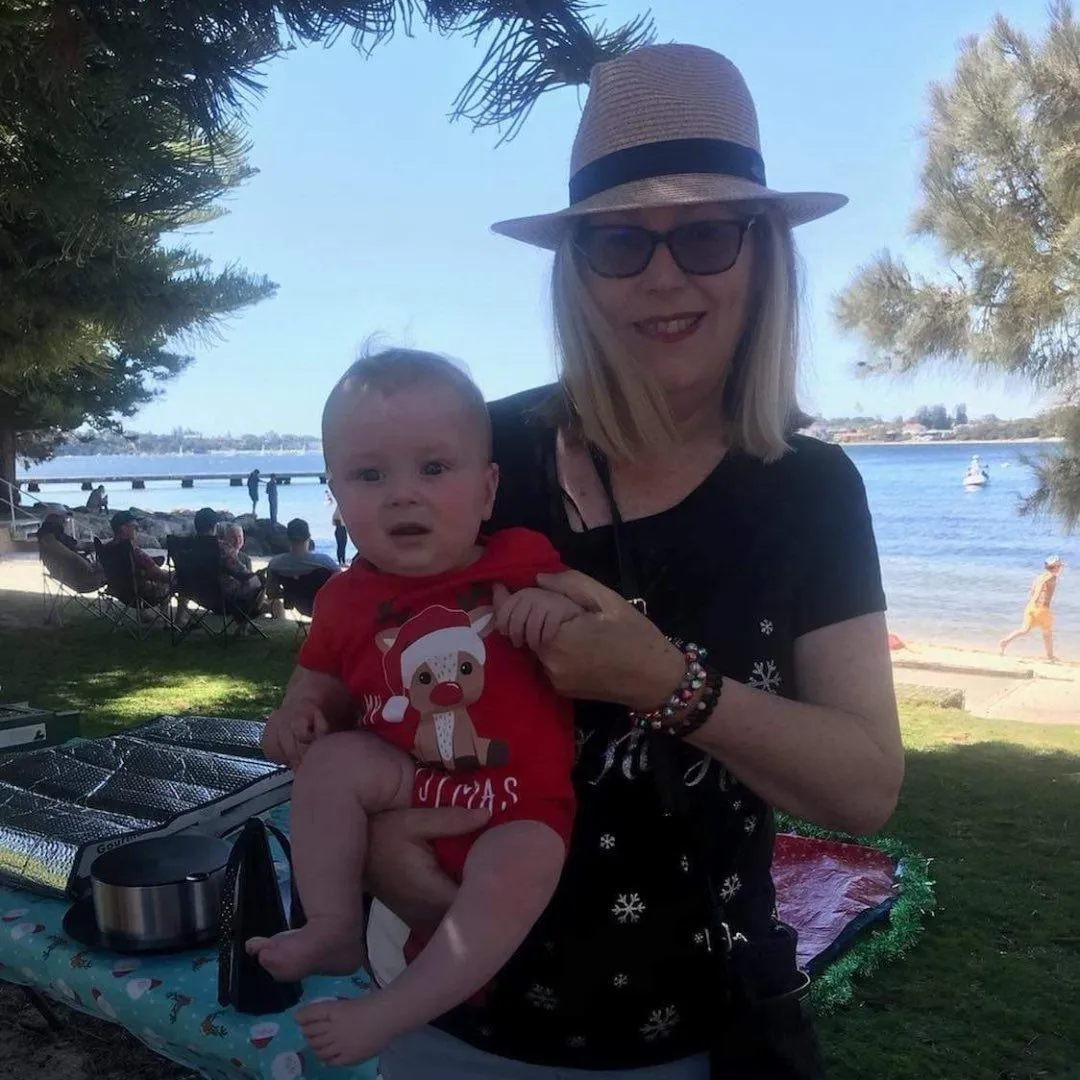
Initially, I just wanted to lose weight, that was the biggest thing for me. But when speaking with Elliot I realised I wanted to also to change my mentality and become excited again to exercise.
Deb

“I was motivated to start working with Elliot becasue I wanted to lose weight, feel more comfortable in my own skin and get a better understanding on how to eat around PCOS. I lost 6kg working with Elliot!
Nele

"Biggest change for me is my confidence. Worth every minute. Would highly recommend this to anyone who does want to make a change and needs a helping hand to get there."
Josh

"I'm down 13.2kgs! The biggest change for me, mindset. Elliot really helped change the way I think about progress and how to look at the changes I have achieved."
Jakob

"Elliot was amazing to work with and was always extremely encouraging and supportive of not only my fitness journey but he also focused on my overall mindset which was really great! He was super attentive and checked in very regularly which helped me to stay on track. I would highly recommend the program as a great way to kick start your fitness and to learn how you should be taking care of your body and your mind!"
Tiah

"A key takeaway for me was that the number on the scale isn't all that matters, and as long as you overall stick to your program some cheat days are fine :)
Brodie

I always had lower back issues. So, the warm-ups in a way that targeted specific areas and muscles have helped that massively! No back pain has been a big motivator for me to keep progressing."
Ryan

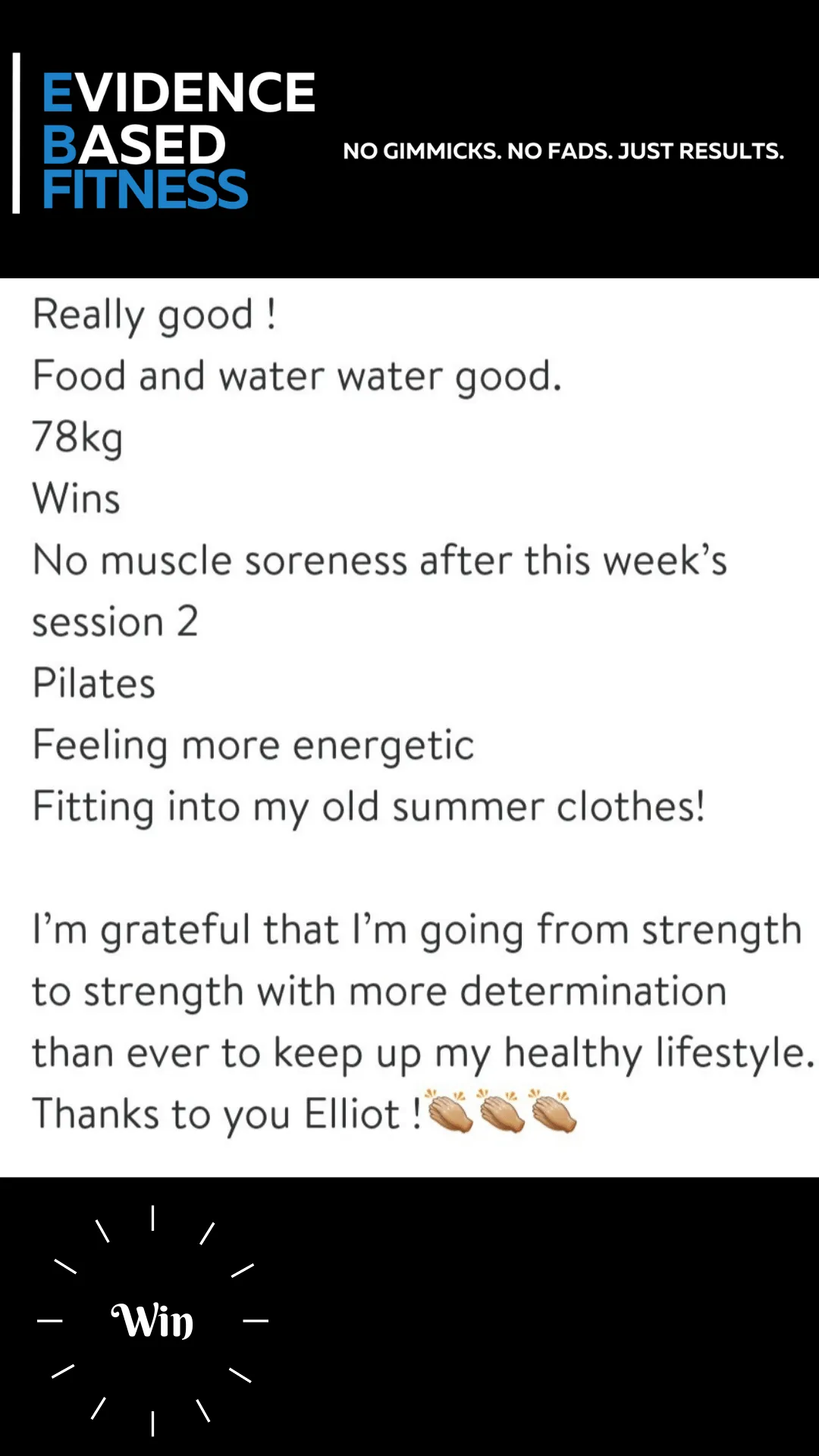
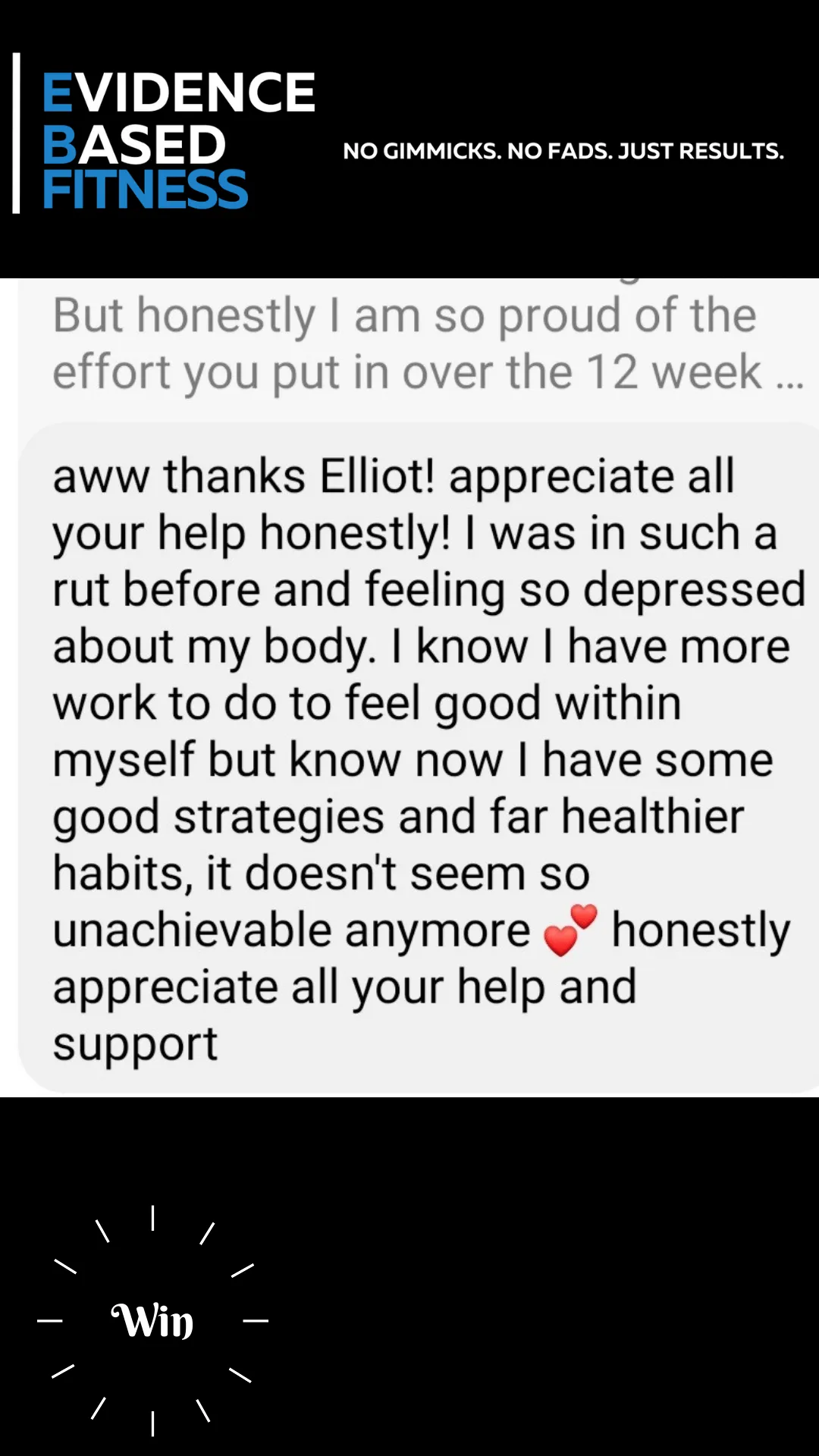
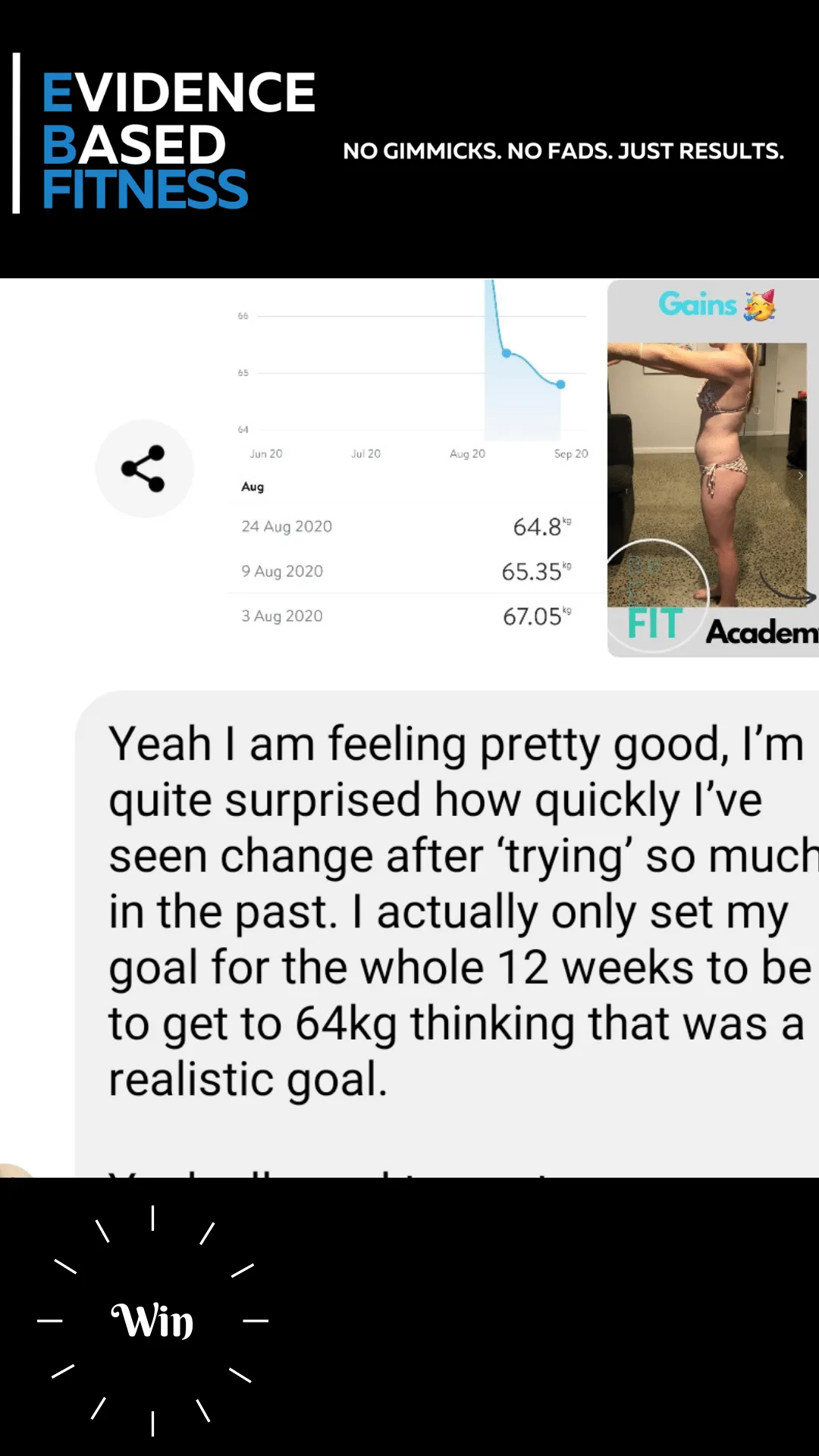
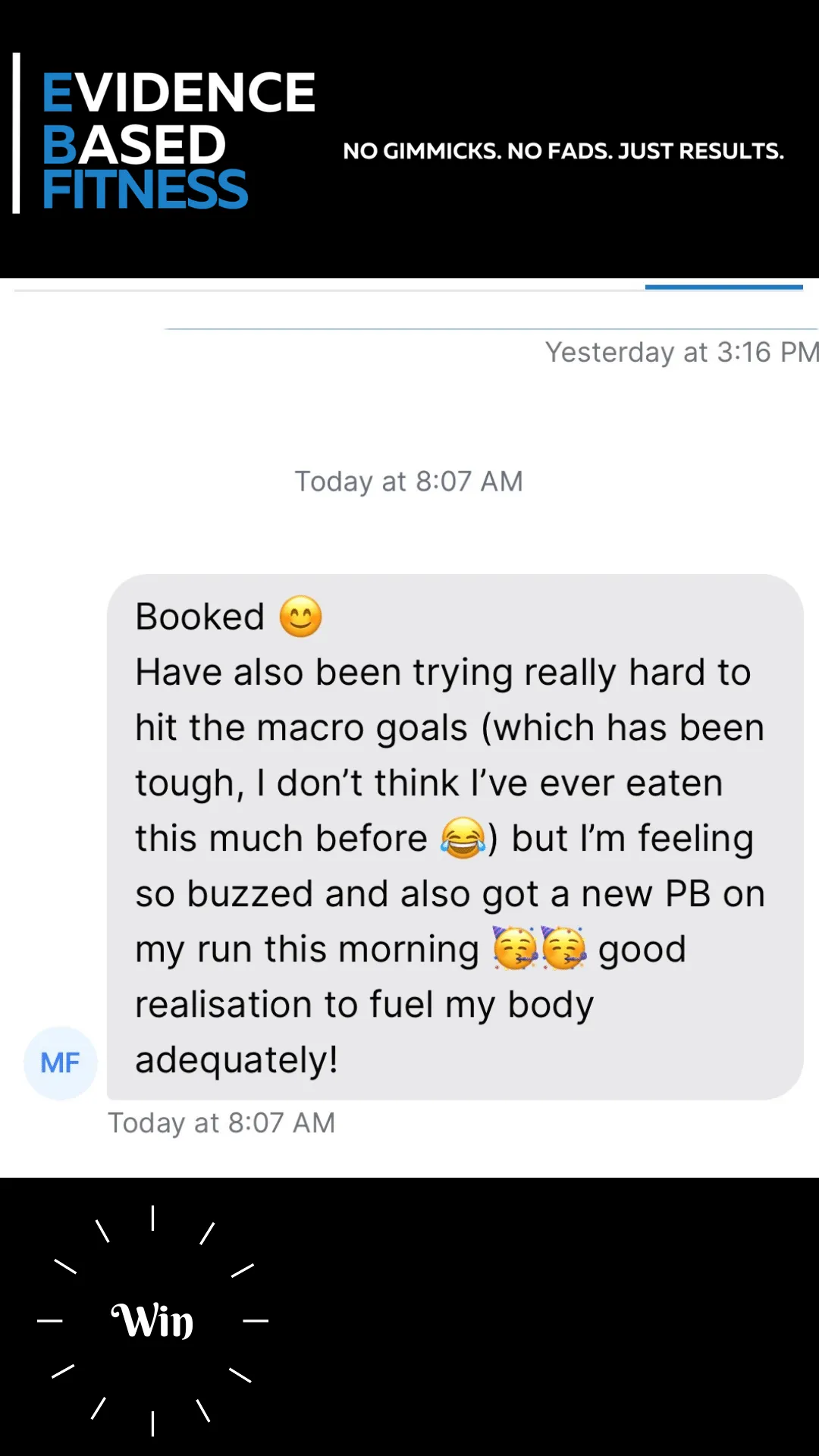
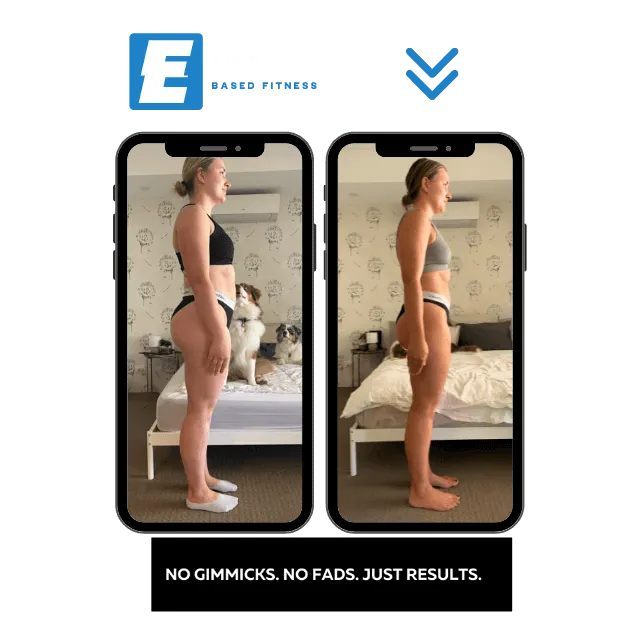
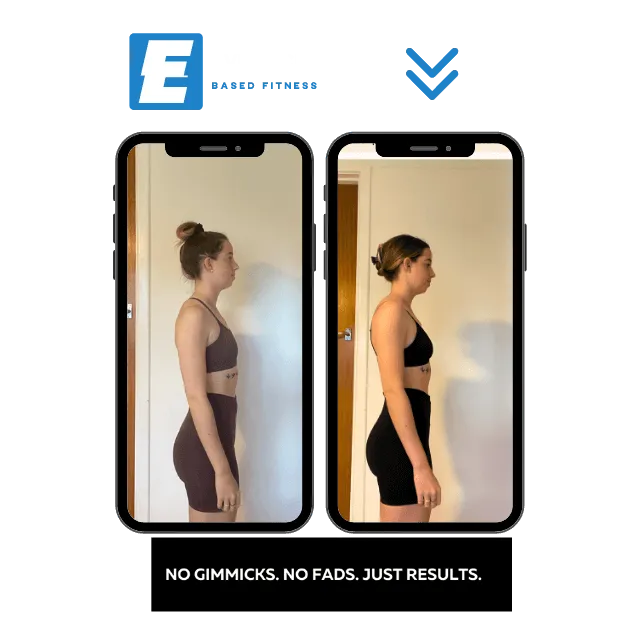
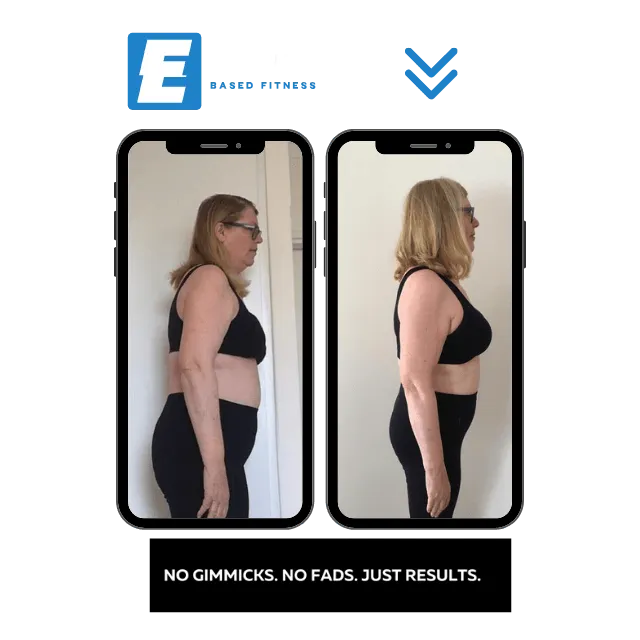
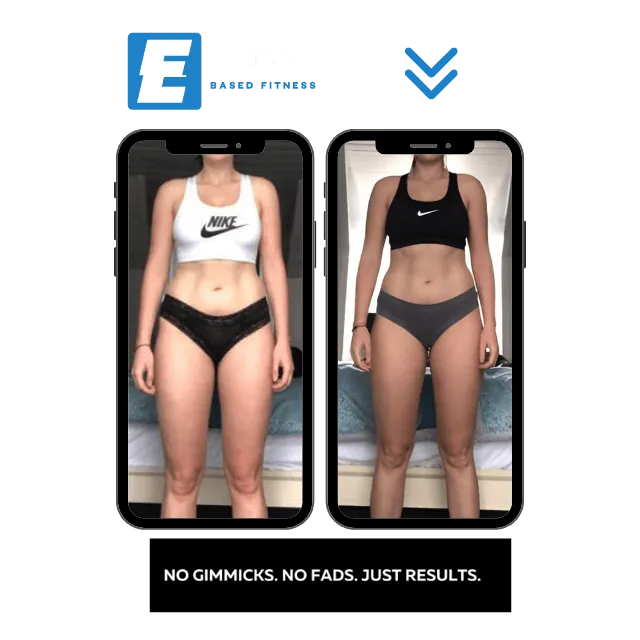
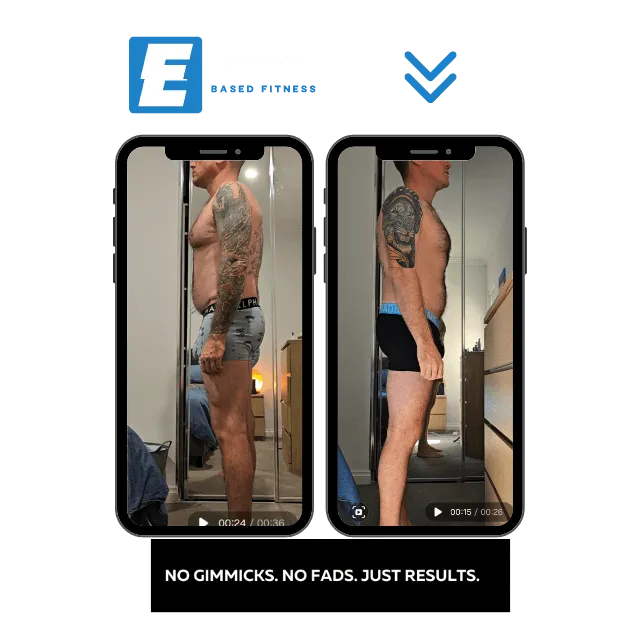

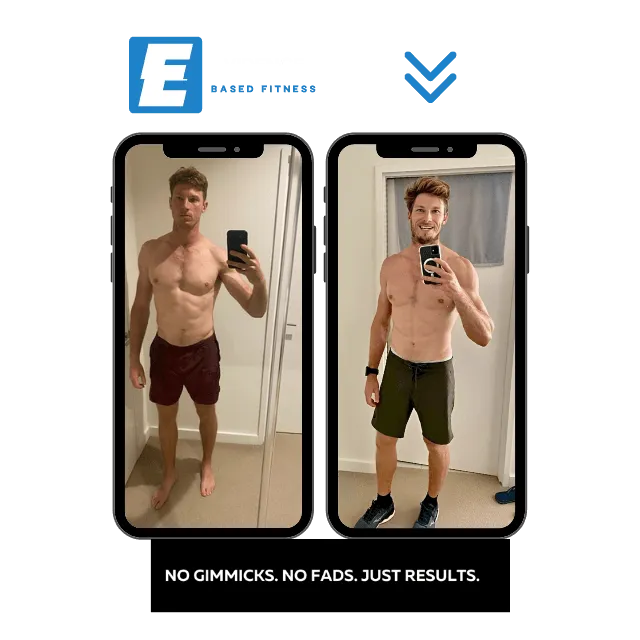
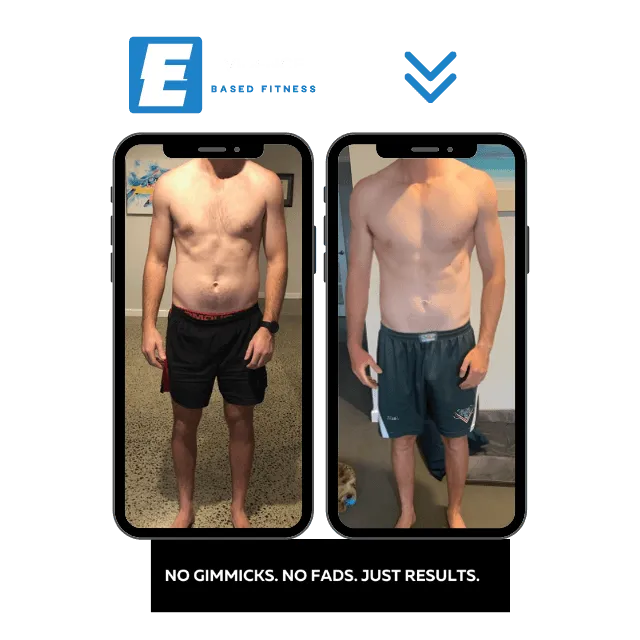
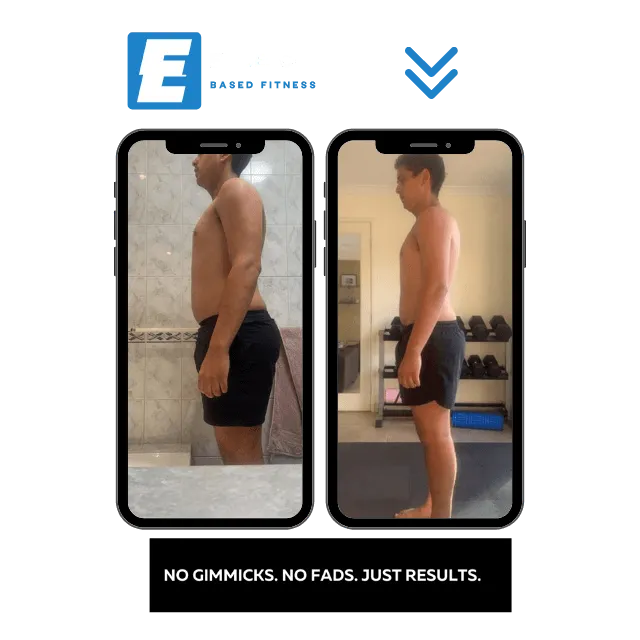
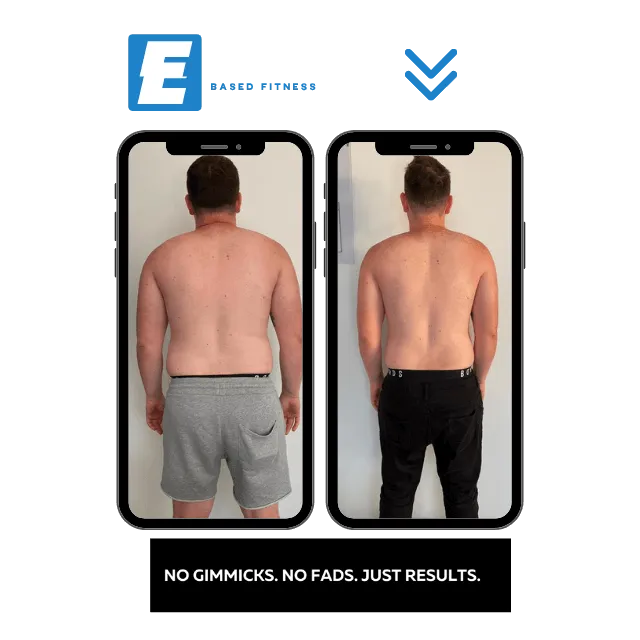
Call 0406502694
Email: elliotharris@ebfitness.com.au
Site: www.ebfitness.com.au
